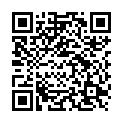|
|
|
| Module code: WIBAS-220 |
|
|
4V+2U (6 hours per week) |
|
8 |
| Semester: 2 |
| Mandatory course: yes |
Language of instruction:
German |
Assessment:
Written exam
[updated 30.07.2021]
|
WIBAS-220 (P450-0090) Industrial Engineering, Bachelor, ASPO 01.10.2007
, semester 2, mandatory course
|
90 class hours (= 67.5 clock hours) over a 15-week period.
The total student study time is 240 hours (equivalent to 8 ECTS credits).
There are therefore 172.5 hours available for class preparation and follow-up work and exam preparation.
|
Recommended prerequisites (modules):
None.
|
Recommended as prerequisite for:
WIBAS-450/550-M2f
WIBAS-450/550-M6
[updated 21.03.2013]
|
Module coordinator:
Prof. Dr. Michael Krämer |
Lecturer:
Prof. Dr. Michael Krämer (lecture)
[updated 25.03.2011]
|
Learning outcomes:
After successfully completing this module, students will be able to determine the effects of force on structural components and dimension simple load-bearing structures.
[updated 30.07.2021]
|
Module content:
Statics:
1. Force concept, force and moment effects on the basis of Newton´s axioms
2. graphic and mathematical determination of resulting forces and moments
3. Applications with central and flat force systems, e.g. bearing forces
4. Normal forces, shear forces, internal forces and their effects on the interior of a structure
5. Beams and trusses
6. Friction
7. Centroid
Strength of Materials:
1. Effects of internal forces on materials: stress (normal stress, tangential stress)
2. Theory of Elasticity: deformation of structural components (bending of straight bars)
3. Uniaxial and biaxial stress states
[updated 30.07.2021]
|
Teaching methods/Media:
Regularly revised lecture notes will be passed out.
[updated 30.07.2021]
|
Recommended or required reading:
• Holzmann G./ Dreyer, H.J./ Faiss, H.: Technische Mechanik, Festigkeitslehre.
• Holzmann, G./ Meyer H./ Schumpich G.: Technische Mechanik, Statik.
• Gross/Hanger/Schröder/Wall: Technische Mechanik 1.
[updated 30.07.2021]
|

